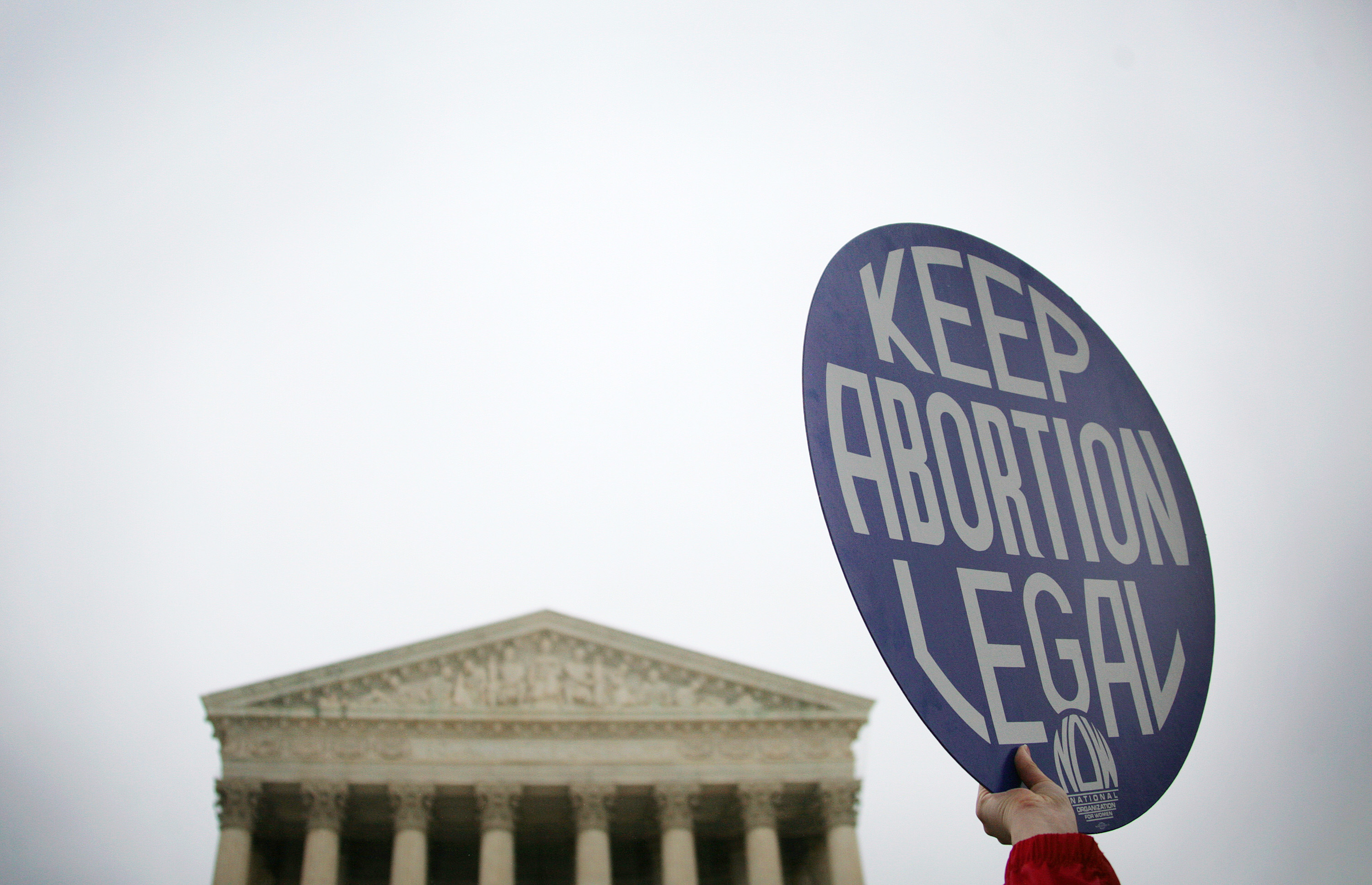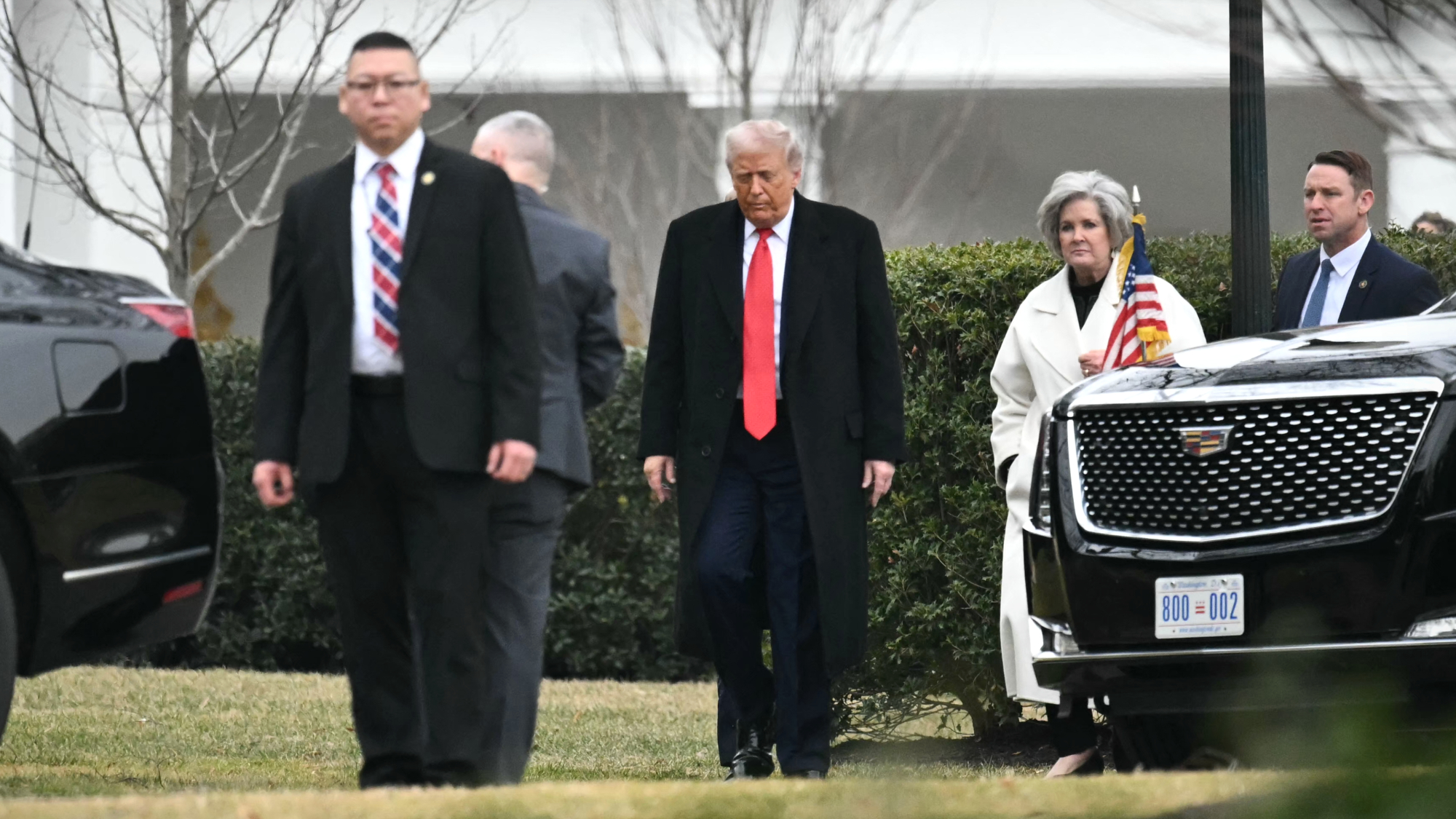Why Republicans are worried about Wisconsin's Supreme Court
What the loss means for the GOP going forward


A free daily email with the biggest news stories of the day – and the best features from TheWeek.com
You are now subscribed
Your newsletter sign-up was successful
Milwaukee County Judge Janet Protasiewicz last week defeated former Supreme Court Justice Dan Kelly to win a spot on Wisconsin's Supreme Court, giving the state's highest court its first liberal majority in 15 years. Seats on the court are officially nonpartisan, but Protasiewicz touted her support for abortion rights during the campaign, and received the endorsement of Democrats. Kelly, a conservative, was backed by Republicans and anti-abortion groups.
The race broke spending records and became a referendum on last year's Dobbs decision by the U.S. Supreme Court that overturned Roe v. Wade, the ruling that established and protected a constitutional right to abortion for half a century. Wisconsin's new liberal majority could overturn laws championed by the right, including the state's 19th-century-era abortion ban. "Today I'm proud to stand by the promise I've made to every Wisconsinite that I will always deliver justice and bring common sense to our Supreme Court," Protasiewicz told supporters. "Our state is taking a step forward to a better and brighter future where our rights will be protected."
Kelly said he respected the result but refused to call Protasiewicz to concede, saying her partisan appeals on issues like abortion and redistricting "demeaned the judiciary." "I wish, in a circumstance like this, I would be able to concede to a worthy opponent. But I do not have a worthy opponent to which I can concede," Kelly said. "I wish Wisconsin the best of luck, because I think it's going to need it."
The Week
Escape your echo chamber. Get the facts behind the news, plus analysis from multiple perspectives.

Sign up for The Week's Free Newsletters
From our morning news briefing to a weekly Good News Newsletter, get the best of The Week delivered directly to your inbox.
From our morning news briefing to a weekly Good News Newsletter, get the best of The Week delivered directly to your inbox.
A wake-up call for the GOP?
"Republicans should be on the march," said Kimberley Strassel in The Wall Street Journal, given that the economy is on the brink of recession, the border's a mess, and crime is rising. Instead, "an out-and-out progressive judge" trounced her conservative opponent by 10 points in a state Donald Trump carried in 2016, and "where Republicans control both chambers of the state legislature." And Protasiewicz "easily seized the swing seat" on the high court by running "unapologetically on abortion at a time when a pending lawsuit challenges an 1849 law banning the procedure." In election after election, swing voters are showing they "want a middle position" on abortion, but the right refuses to "unwax" its ears and keeps pushing for more and more restrictions.
There's a good reason Republicans are starting to freak out about voters' demand to restore abortion rights, said Michelle Goldberg in The New York Times. "Having made the criminalization of abortion a central axis of their political project for decades, Republicans have no obvious way" to change their message now. "A decisive majority of Americans — 64 percent, according to a recent Public Religion Research Institute survey — believe that abortion should be legal in most cases," but "a decisive majority of Republicans" want the procedure banned. The "end of Roe has awakened a previously complacent pro-choice majority" that is winning elections, and the Republican Party can't "jettison" its old anti-abortion passion, which is suddenly a liability, "without tearing itself apart."
Republicans need new leadership
"If Republicans were serious about winning Arizona, Georgia, and Wisconsin in 2024 and thus the White House," they would get serious about winning over suburban voters, said Matthew Continetti in The Washington Free Beacon. That means adding "white voters with college degrees and suburban America atop their noncollege rural base." But the GOP has lost its advantage in the suburbs in the Trump era. Turning that around will require replacing "Donald Trump as party leader," and finding "a nominee who is pro-life and who can speak about abortion restrictions — with exceptions for rape, incest, and life of the mother — in a nonthreatening way." That's the lesson of the Wisconsin vote, and "of every election cycle since 2016."
Not quite, said the Los Angeles Times in an editorial. The lesson is that voters want to "protect the rights the Supreme Court wouldn't." When the Supreme Court overturned Roe and "took away the constitutional right to abortion, it left it up to the states — and the voters of those states — to protect reproductive rights." And that's precisely what voters in states across the nation intend to do. It was unusual to see a judicial race turn so partisan, but Protasiewicz's honesty in talking about her pro-choice views was refreshing after listening to Brett Kavanaugh insist in his confirmation hearing that Roe was settled law, only to vote to "take away a constitutional right" once he was on the Supreme Court. "This is the post-Roe world in which we live."
A free daily email with the biggest news stories of the day – and the best features from TheWeek.com
Harold Maass is a contributing editor at The Week. He has been writing for The Week since the 2001 debut of the U.S. print edition and served as editor of TheWeek.com when it launched in 2008. Harold started his career as a newspaper reporter in South Florida and Haiti. He has previously worked for a variety of news outlets, including The Miami Herald, ABC News and Fox News, and for several years wrote a daily roundup of financial news for The Week and Yahoo Finance.
-
 The ‘ravenous’ demand for Cornish minerals
The ‘ravenous’ demand for Cornish mineralsUnder the Radar Growing need for critical minerals to power tech has intensified ‘appetite’ for lithium, which could be a ‘huge boon’ for local economy
-
 Why are election experts taking Trump’s midterm threats seriously?
Why are election experts taking Trump’s midterm threats seriously?IN THE SPOTLIGHT As the president muses about polling place deployments and a centralized electoral system aimed at one-party control, lawmakers are taking this administration at its word
-
 ‘Restaurateurs have become millionaires’
‘Restaurateurs have become millionaires’Instant Opinion Opinion, comment and editorials of the day
-
 Why are election experts taking Trump’s midterm threats seriously?
Why are election experts taking Trump’s midterm threats seriously?IN THE SPOTLIGHT As the president muses about polling place deployments and a centralized electoral system aimed at one-party control, lawmakers are taking this administration at its word
-
 House votes to end Trump’s Canada tariffs
House votes to end Trump’s Canada tariffsSpeed Read Six Republicans joined with Democrats to repeal the president’s tariffs
-
 How are Democrats trying to reform ICE?
How are Democrats trying to reform ICE?Today’s Big Question Democratic leadership has put forth several demands for the agency
-
 Is Alex Pretti shooting a turning point for Trump?
Is Alex Pretti shooting a turning point for Trump?Today’s Big Question Death of nurse at the hands of Ice officers could be ‘crucial’ moment for America
-
 Halligan quits US attorney role amid court pressure
Halligan quits US attorney role amid court pressureSpeed Read Halligan’s position had already been considered vacant by at least one judge
-
 House approves ACA credits in rebuke to GOP leaders
House approves ACA credits in rebuke to GOP leadersSpeed Read Seventeen GOP lawmakers joined all Democrats in the vote
-
 Vance’s ‘next move will reveal whether the conservative movement can move past Trump’
Vance’s ‘next move will reveal whether the conservative movement can move past Trump’Instant Opinion Opinion, comment and editorials of the day
-
 The MAGA civil war takes center stage at the Turning Point USA conference
The MAGA civil war takes center stage at the Turning Point USA conferenceIN THE SPOTLIGHT ‘Americafest 2025’ was a who’s who of right-wing heavyweights eager to settle scores and lay claim to the future of MAGA
